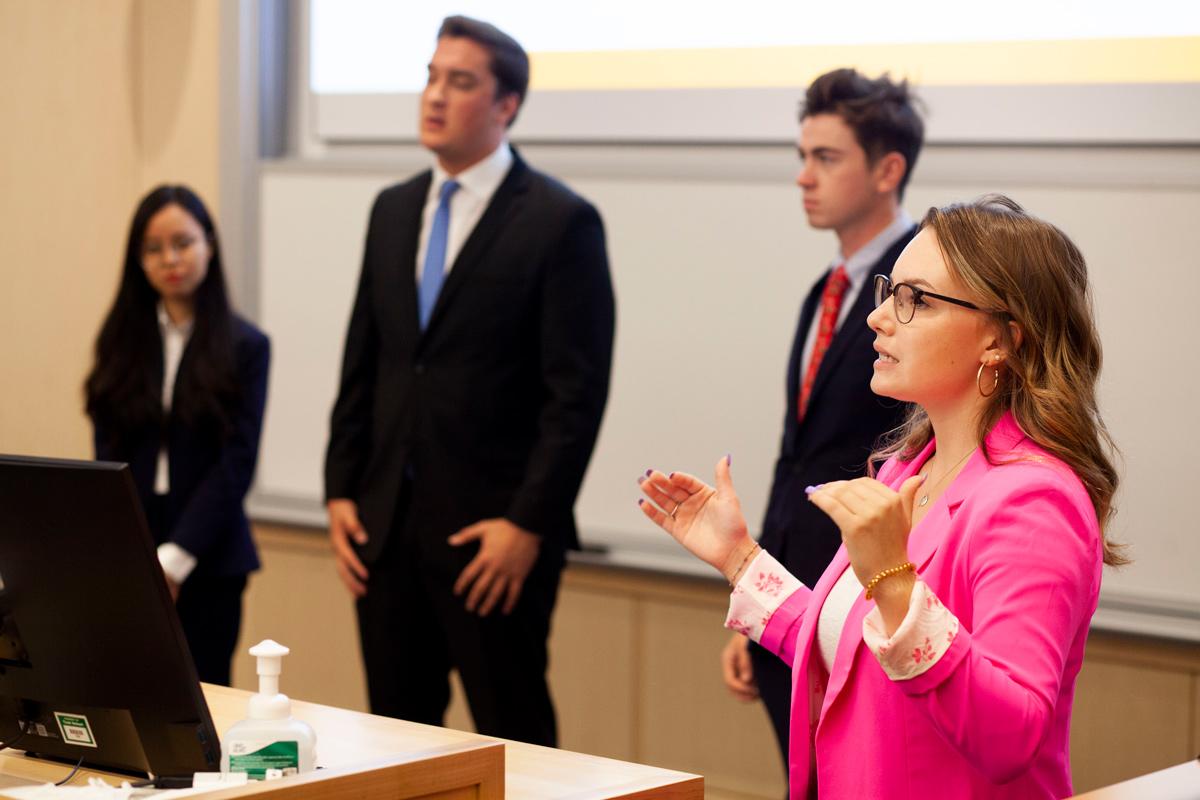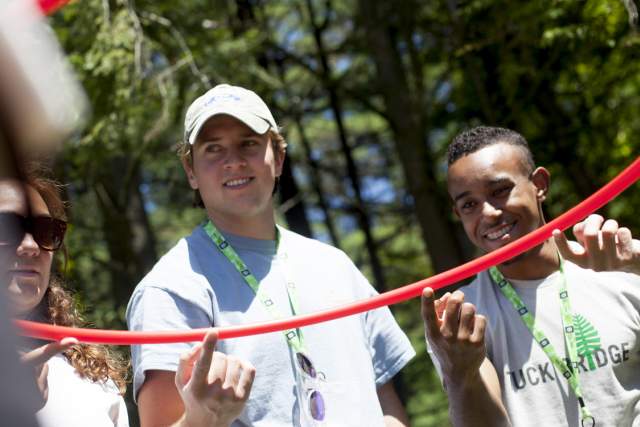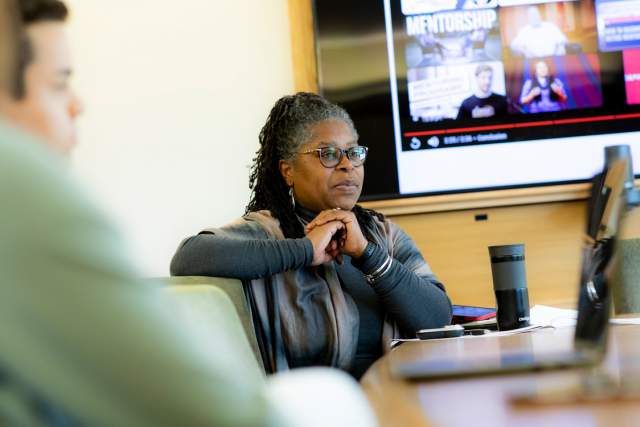In response to evolving student interests and needs, Tuck’s Business Bridge Program for undergraduates has introduced a suite of new electives taught by faculty and professionals who may not be new to Tuck, but are new to teaching in Bridge.
The new electives, carefully chosen based on student feedback and trends in business, offer students a taste of what they can expect in a full-time MBA or other graduate business program, says Leslie Robinson, professor of business administration and faculty director of the Business Bridge Program.
“We read all our student evaluations and these are the things students express interest in,” says Robinson. “It’s important to round out the core programming with electives so that students can explore other areas covered in graduate business education, both in terms of content and how we teach it. After all, Bridge is in part a way for them to see if a business education is appealing.”

For their Tuck Bridge Capstone Project, student teams select a publicly-traded company, analyze its business, and determine how much the company is worth.
The new electives include: Real Estate with Brian Melzer, associate professor or business administration; Hot Topics in Health Care with Katherine Milligan D’90, T’07, adjunct professor and program director of the Tuck-Dartmouth Master of Health Care Delivery Science program; Business Law with Anne Corbin, assistant director of the Center for Professional Development at Dartmouth; Entrepreneurship with Trip Davis D’90, adjunct professor of business administration and Daniella Reichstetter T’07, clinical professor of business administration and faculty adviser for the Center for Entrepreneurship; and Investments: From DCF to Market Valuations with Matthew Considine, professor of practice at Middlebury College.
These courses aim to augment the technical skills and economics-based thinking taught in core courses, while also providing opportunities for students to enhance their communication and leadership abilities.
In June, the Business Bridge Program welcomed 150 students from 48 institutions across the country, including Colby College, Colorado College, Middlebury College, Georgetown University, Duke University, and Pomona College. Representing a broad range of disciplines, the students will engage in an intensive learning experience, covering essential business topics while also gaining valuable insights from panels and sessions led by MBA students, alumni, and Tuck professional staff.
Technical skills like accounting and finance are essential. Economics-based thinking is essential. And soft skills like communication and leadership are essential. Building a network as early as possible in one’s career is also essential and Bridge helps them do that.
—Leslie Robinson, Professor of Business Administration; Faculty Director,
Tuck Business Bridge
“Technical skills like accounting and finance are essential. Economics-based thinking is essential. And soft skills like communication and leadership are essential,” says Robinson. “Bridge is a safe place where students can explore a business education without a huge upfront investment of time. Building a network as early as possible in one’s career is also essential and Bridge helps them do that.”
Through the combination of core courses, new electives, and the Tuck Bridge Capstone Project, students gain a comprehensive understanding of the business world and develop the skills necessary for future leadership roles. As the program continues to innovate and adapt, it stays true to its primary objective: to provide a rich, explorative, and empowering business education for today’s learners, and tomorrow’s leaders.

